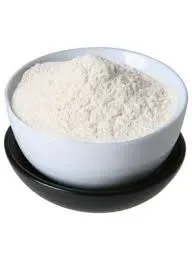
Sult . 23, 2024 06:59 Back to list
hydroxyethyl cellulose thickener
Hydroxyethyl Cellulose Thickener An Overview
Hydroxyethyl cellulose (HEC) is a water-soluble polymer derived from cellulose, a natural biopolymer obtained from plant sources. It is widely utilized in various industries due to its remarkable thickening, stabilizing, and emulsifying properties. HEC is especially prominent in the cosmetics, pharmaceuticals, food, and construction sectors.
One of the primary advantages of hydroxyethyl cellulose is its ability to form viscous solutions when dissolved in water. This property makes it an excellent thickening agent, allowing manufacturers to achieve the desired viscosity in their products. In the cosmetics industry, for example, HEC is commonly used in creams, lotions, gels, and shampoos, enhancing the texture and application of these formulations. It helps to create a smooth and uniform consistency, making the products more appealing and easier to use.
In the pharmaceutical industry, HEC is often included in ointments and gels. Its thickening ability not only provides an ideal texture, but also helps to control the release of active ingredients. This is crucial for ensuring that medications are effective and provide the desired therapeutic effects. Moreover, HEC is non-toxic and has a good safety profile, making it suitable for use in various applications, including those intended for sensitive skin.
hydroxyethyl cellulose thickener

HEC's versatility extends to the food industry as well, where it is used as a food thickener and stabilizer. It can improve the mouthfeel and texture of various food products, such as sauces, dressings, and dairy items. Additionally, HEC is often utilized in gluten-free formulations, as it can mimic the properties of gluten, giving products a desirable texture without compromising health.
In the construction industry, hydroxyethyl cellulose is used as an additive in cement-based products, tile adhesives, and joint compounds. It enhances the workability and stability of these mixtures, allowing for better application and adhesion. The water retention properties of HEC also contribute to improved performance, as they help to prevent drying too quickly, which can lead to cracking.
Moreover, the demand for eco-friendly and sustainable alternatives has led to an increased interest in natural polymer-based products like hydroxyethyl cellulose. As industries seek to reduce their environmental impact, HEC offers an effective solution, being derived from renewable resources.
In conclusion, hydroxyethyl cellulose is a versatile and valuable thickener with a wide range of applications across various industries. Its non-toxic nature, ability to enhance product texture, and contribution to sustainability make it a preferred choice for manufacturers looking to innovate while meeting consumer demands. As research continues to explore new uses, HEC's potential seems limitless, solidifying its position as an essential ingredient in modern formulations.
-
Versatile Hpmc Uses in Different Industries
NewsJun.19,2025
-
Redispersible Powder's Role in Enhancing Durability of Construction Products
NewsJun.19,2025
-
Hydroxyethyl Cellulose Applications Driving Green Industrial Processes
NewsJun.19,2025
-
Exploring Different Redispersible Polymer Powder
NewsJun.19,2025
-
Choosing the Right Mortar Bonding Agent
NewsJun.19,2025
-
Applications and Significance of China Hpmc in Modern Industries
NewsJun.19,2025







